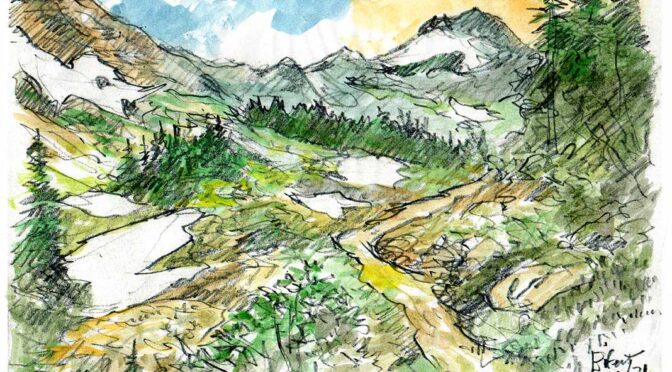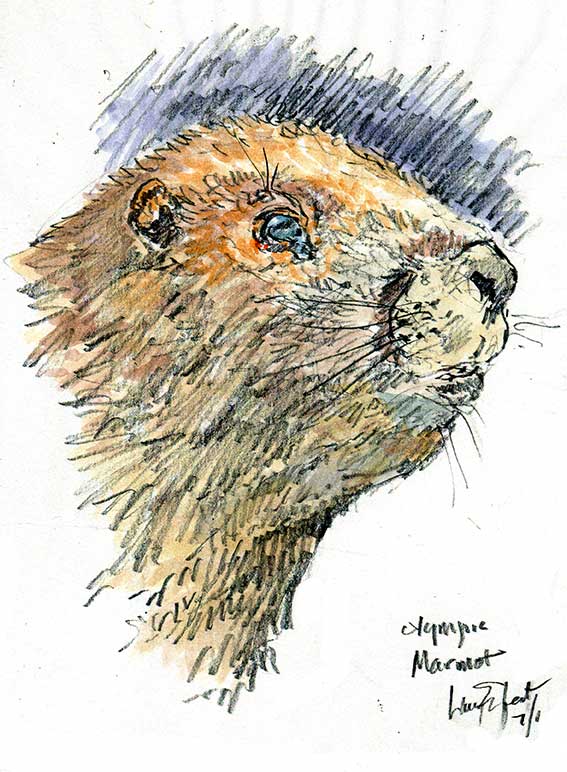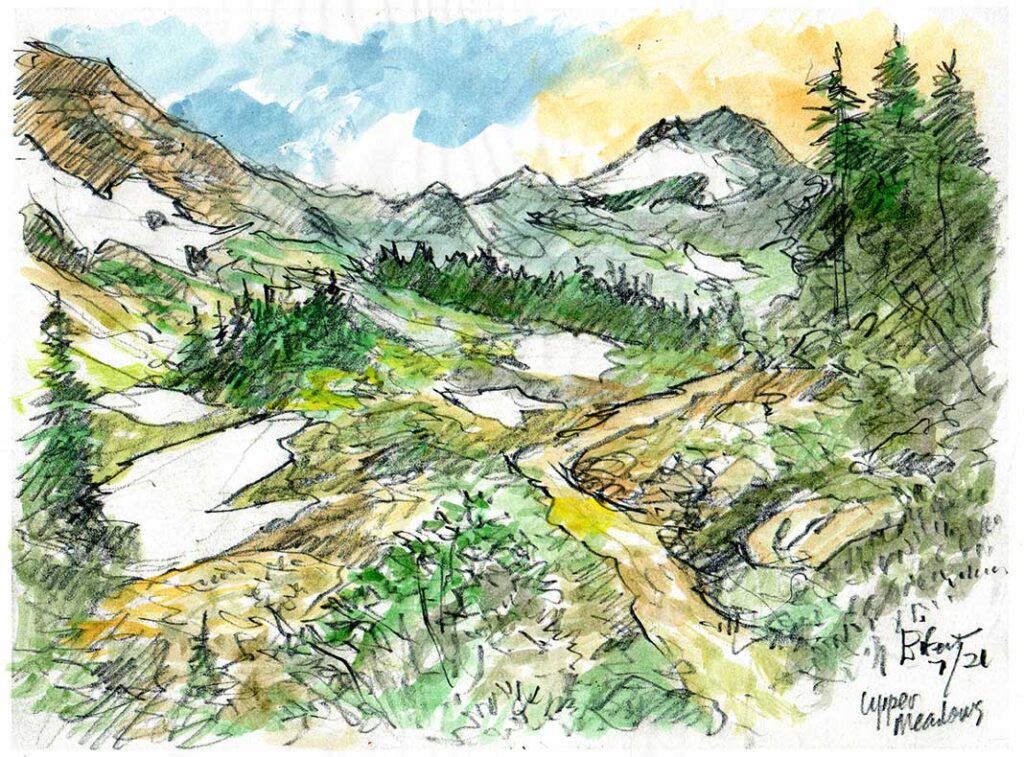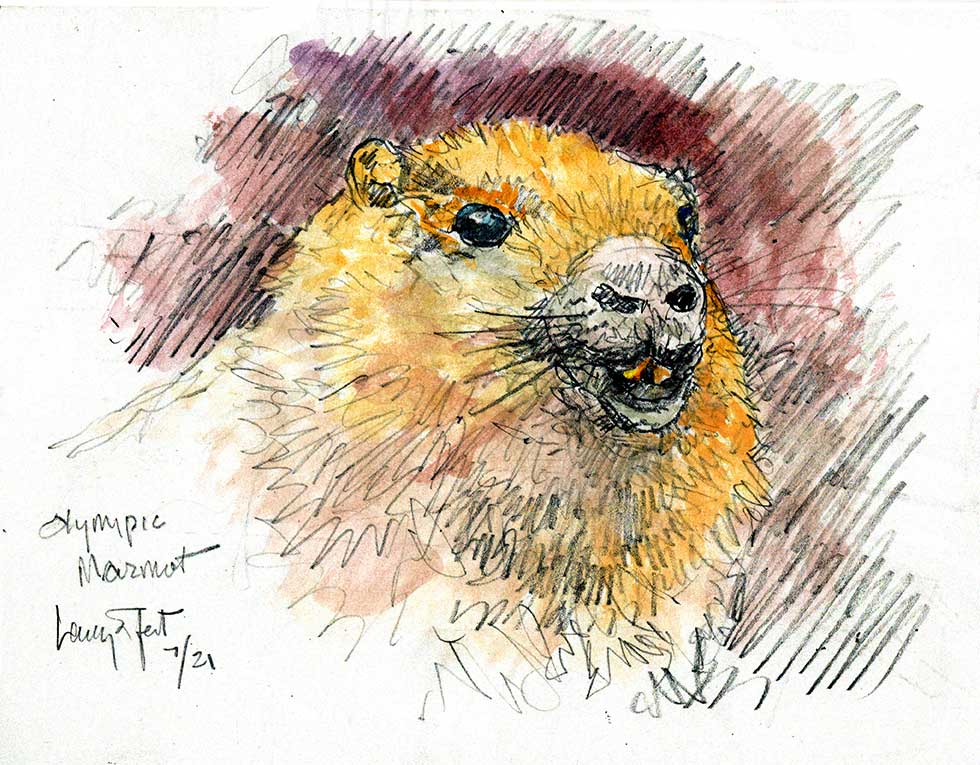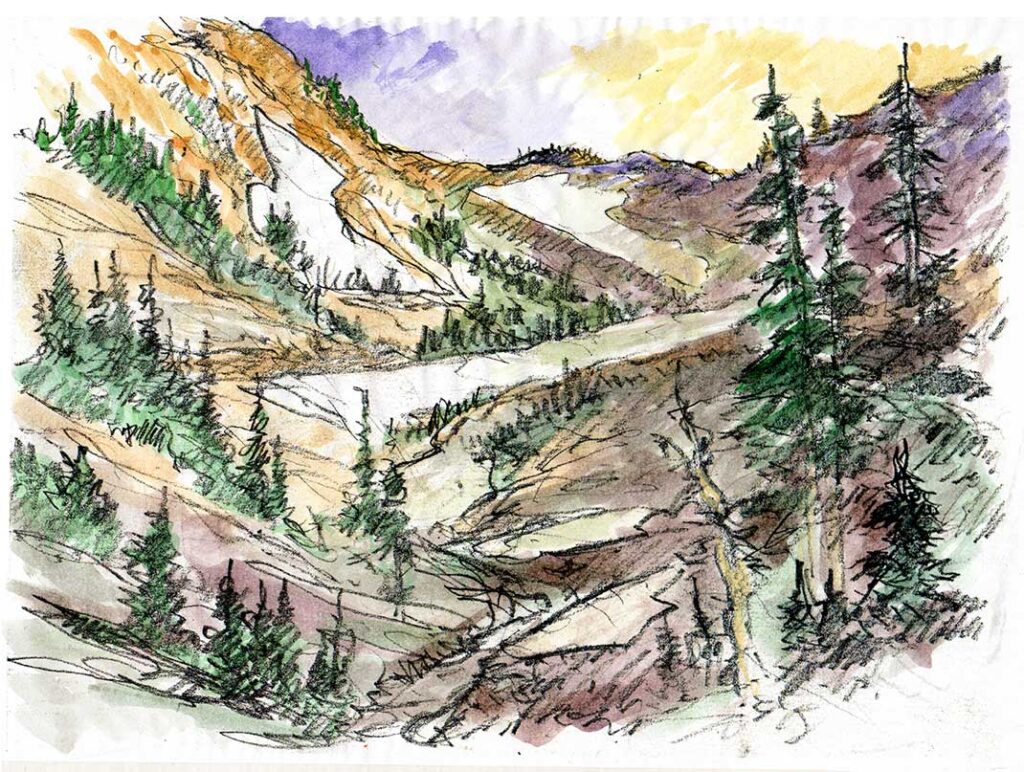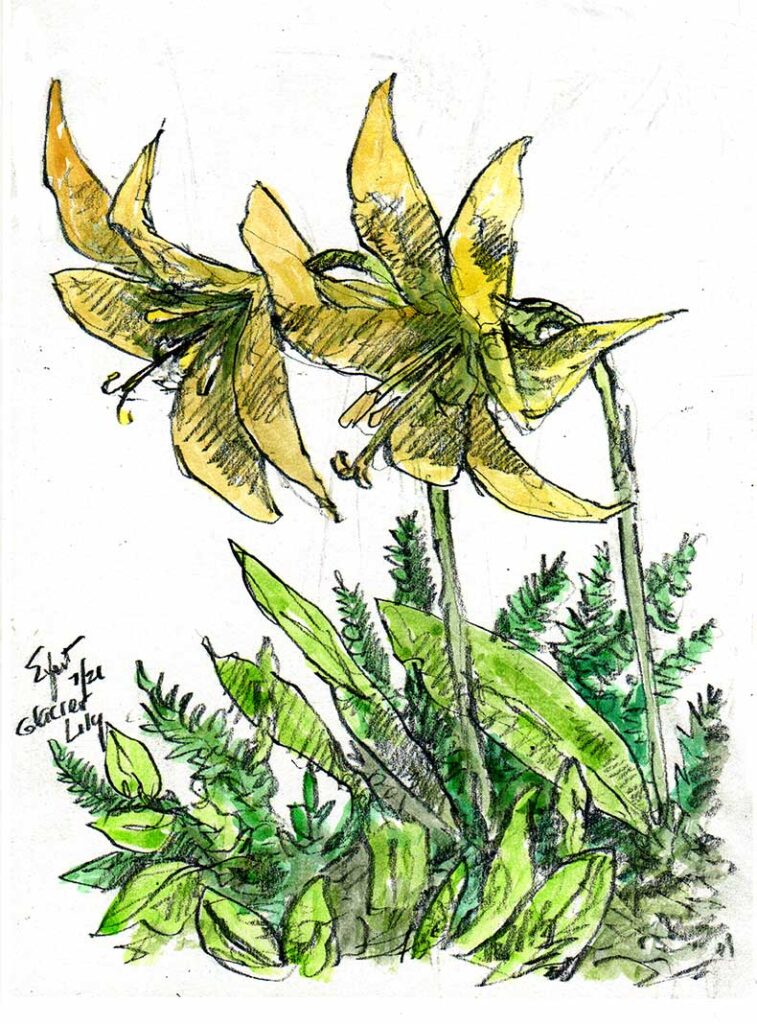The Olympic Endemics
On a recent hike in the Olympic Mountains, I decided to turn my paintbrush towards the endemic Olympic Marmot. There are five mammals and nine others (fish and amphibians) that are only found here and nowhere else on the planet. That’s right, only here! So if you see an alpine chipmunk, it’s the Olympic Chipmunk!
The Olympic Marmot is a woodchuck-type critter that lives in burrows just at treeline. They’re worth painting. I also did some watercolors of their world, a rare place with fragile flowers and manicured meadows, streams falling and pocket ponds people would pay big money for at home – but here it’s just why I come in the first place, and the only real cost is sweat. It’s a singular place like no other I know.
But the marmots aren’t the wildlife I want to tell you about. Here’s a little story about one night there, very small tent and a big experience that was, in the end, a great memory. It was just getting dark and . . . .
I zipped my Lunar Solo tent’s fly shut, snuggled into my bag and fell sound asleep. No moon tonight, the night was pitch black except the amazing spectacle of the Milky Way above. Sometime later, I was suddenly awakened by someone, or something, rattling the tent, grunting, heavy breathing. I was in the Olympics, so no grizzlies, but still! It was really shaking.
Then, another set of major rattling and just as I started to yell a warning, down the tent came on top of my head, me in a sort of Lycra cocoon, fumbling both for the zipper and the light. Then more noises outside (wait, I WAS outside – nylon doesn’t count). I realized it was more deerlike than bear, I thought. I got the zipper open, and from my knee viewpoint there I was – looking up at two rather enormous bucks, lots of fuzzy antlers, and one of my hiking sticks in someone’s mouth. Deer slobber, yuck.
The Olympic Mountains of Washington are rare in that there aren’t any mineral deposits, no salts to licks, no seeps, and so all the animals are mineral-starved. The Olympic chipmunk wants your potato chip for the salt, not the food. The deer follow you around hoping you will urinate so they can lick it up, immediately. It’s a little off-putting at first, but then we all just get used to it – and these two were after the salt on my hiking stick’s handles. They weren’t going anywhere until I provided a diversion, so – well, with my light I walked over and found a big flat rock. I’d tell you what it was like to walk across a black meadow with two 200-lb. deer right on my heels, but I’ll let you imagine it.
Back in bed, I listened to both of them licking away, shoving each other, heavy breathing, some grunting. Just try to put that out of your mind and go back to sleep!
Glacier lilies form fields of yellow and white, thousands of them. These glorious flowers seem to prefer the sheltered meadows or under trees. I think they’re easily burned by the sun, so they’ve learned to grow best without the intense alpine sun blasting them.
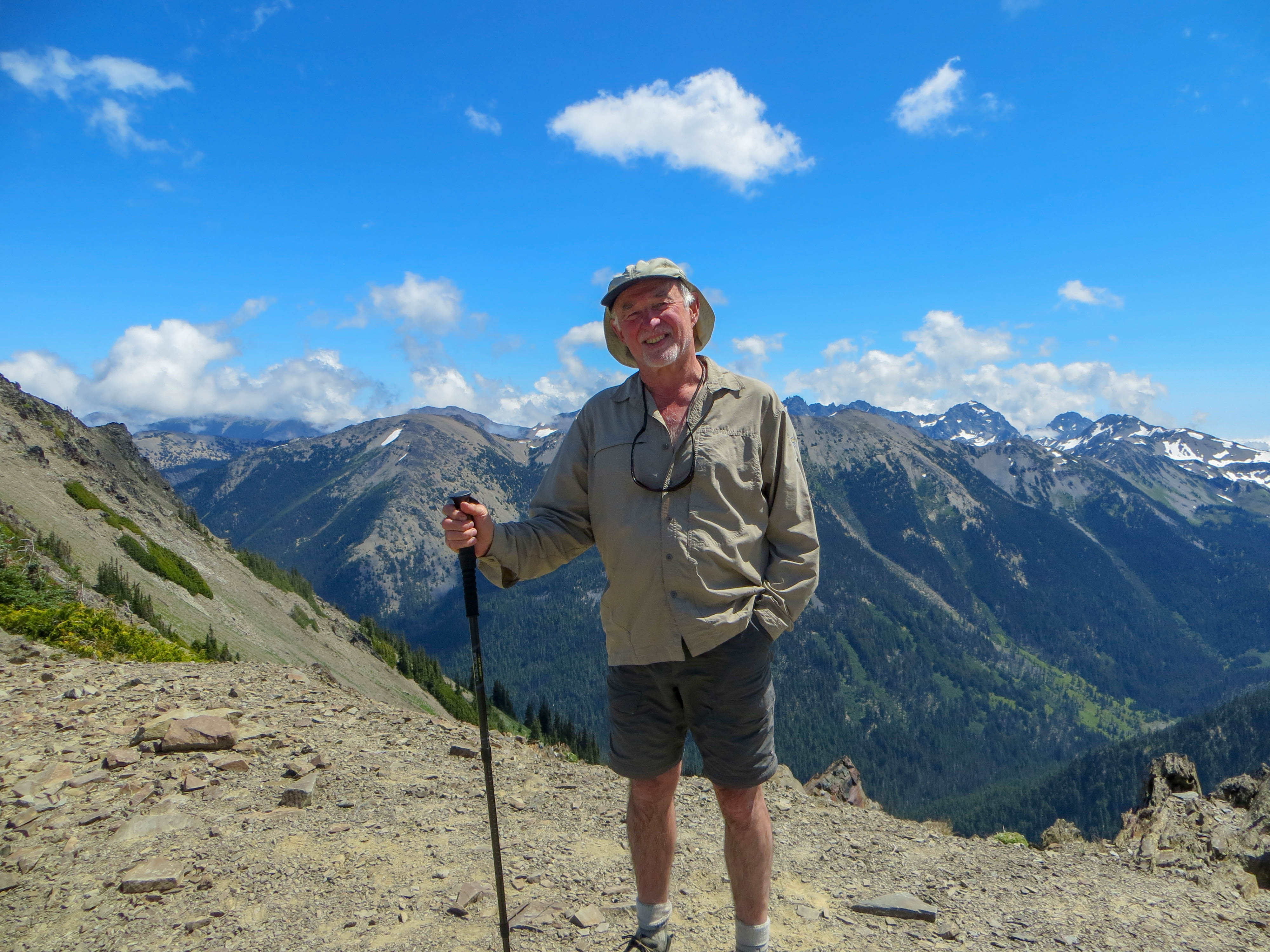
Later in the hike, top of the pass. I soon turn 75 and feel seriously grateful I can still do this. Thanks for reading this week. You can sign up for emails for these posts on my website at larryeifert.com.
Larry Eifert
Here’s my Facebook fan page. I post lots of other stuff there.
Click here to go to our main website – with jigsaw puzzles, prints, interpretive portfolios and lots of other stuff.
Nancy’s web portfolio of stunning photography and paintings.
And here to go to Virginia Eifert’s website.
[previous title] — [next title]
